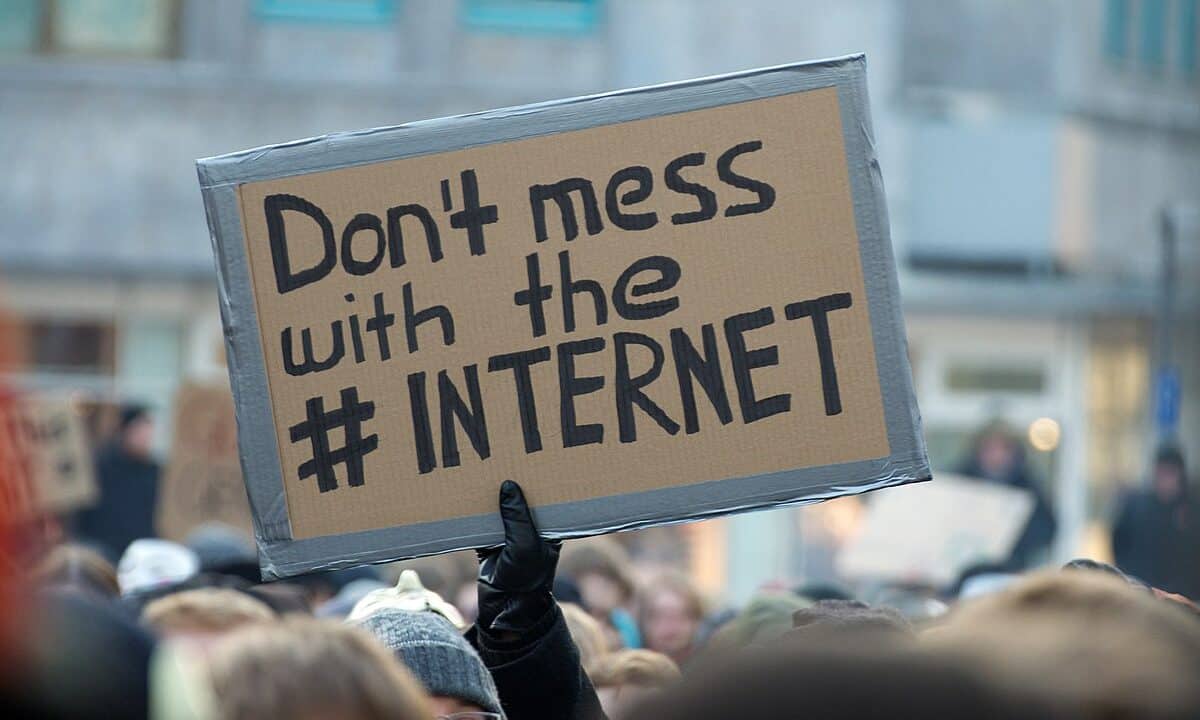 Don't mess with the Internet by M K is licensed under CC BY 3.0 via Wikimedia Commons.
Don't mess with the Internet by M K is licensed under CC BY 3.0 via Wikimedia Commons.
Americans for Tax Reform and Digital Liberty jointly filed reply comments on January 17th to the FCC regarding the agency’s effort to revive Obama’s net neutrality rules. These comments explore how the rules are a solution in search of a problem.
The new submission argues that the FCC’s justification for its revival of the Obama-era rules relies on progressive activist groups’ unfounded claims that broadband providers are engaged in nefarious behavior.
As we argue in the reply comments:
One of the main advocates for this flawed approach to rulemaking is Public Knowledge, whose comments bear an overtone of contempt for the very industries essential to successful broadband deployment. There is a clear consensus that the FCC should not nationalize the internet and provide telecommunications services itself. Adopting Public Knowledge’s suggestions would be an exercise in vengeance against the cable and wireless industries for perceived slights rather than a collaboration to ensure connectivity, as we also argued in our reply comments on the digital discrimination rulemaking. Industry comments in this proceeding will, of course, align with the self-interest of the companies submitting them, but that does not mean that they are misrepresenting the implications of the policies.
To encourage the internet providers to operate in good faith, able to provide broadband service and maintain a free and open internet, we propose the following solution:
In the Infrastructure Investment and Jobs Act (IIJA), Congress made its desire for full broadband coverage for all Americans clear. The public is best served and the goals of the IIJA are best achieved when the Commission prioritizes addressing practical concerns and works to build strong cases against clear-cut bad actors, rather than bog down broadband expansion in litigation between various activist groups squealing around the same public trough. If that happens, the $65 billion in the IIJA for broadband will have been a waste.
ATR and Digital Liberty had initially filed comments on December 15th, 2023 exploring this issue, and identified the consequences if these rules are imposed on ISPs:
Imposing federal regulations appears redundant and may risk creating an unnecessary layer of bureaucracy, potentially stifling innovation and imposing new burdens on broadband providers. Absent some concrete evidence of consumer harms or widespread anticompetitive practices, there is no compelling need for such drastic regulatory measures.
Americans for Tax Reform President Grover Norquist published an Op-Ed in the Washington Times making the case that the Biden Administration is taking full control of the internet. As he argued at the time:
No matter the justification, the data show that giving the government less control over the internet leads to faster, cheaper access. The national security argument makes little sense when innovation and economic growth, not regulation and stagnation, are the keys to American power.
If the FCC gets its way, the agency will slow down the internet. As documented in a particular blog by Digital Liberty:
Using … the speed tester Ookla, we see that the median download speed for fixed broadband only increased a measly 190% in the three years after repeal, from just under 50 Mbps to close to 150 Mbps. By contrast, speeds increased 44% in the three years Net Neutrality was in effect. This was about the same as the rate of increase in the three years before this policy was enacted. Net Neutrality did nothing to improve download speeds and may have held back improvements.
The FCC should rethink its decision about reviving Obama’s rule and imposing a rule to prevent digital discrimination, as it will only burden the broadband providers with unnecessary regulations and deny Americans the use of an effective, fast internet.
You can read the full comments here.

